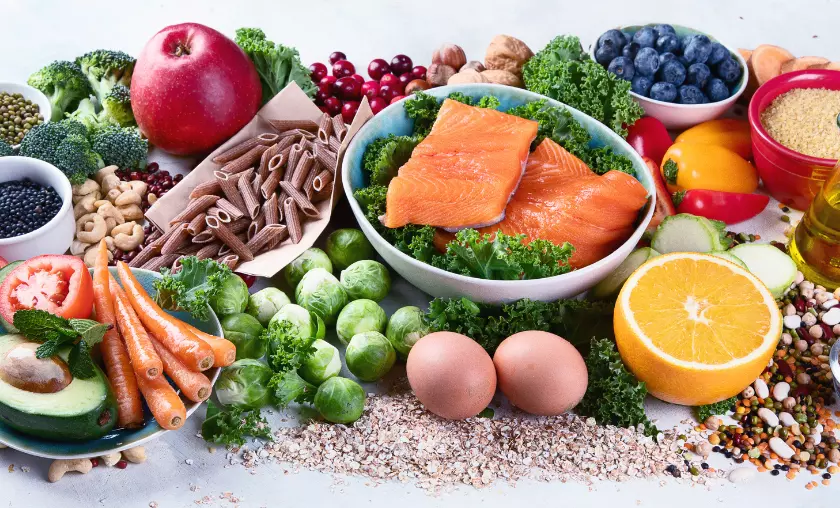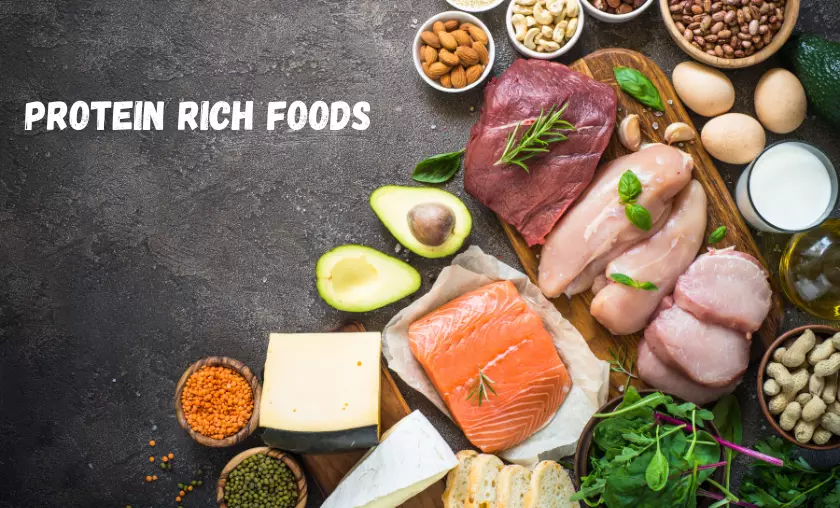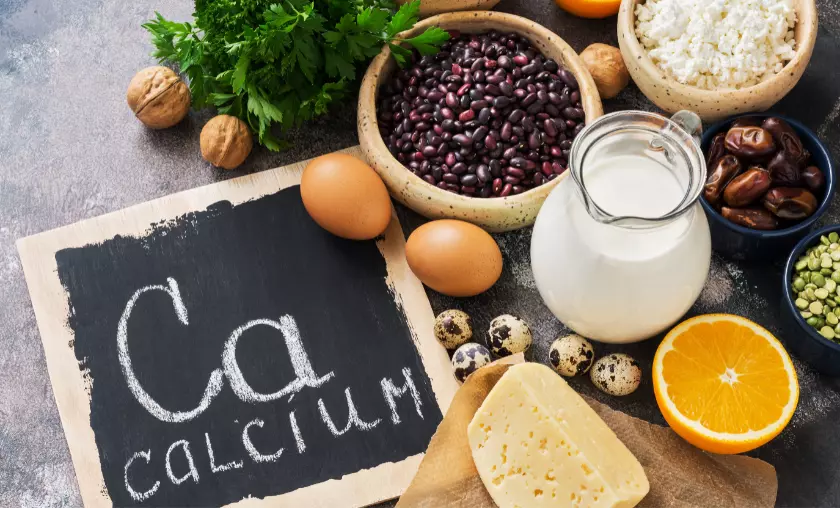
At a time when nutrition and the Health Benefits of Food play a central role in maintaining health, this research offers insights into the nutrient-rich potential of various foods. From nutrient-dense superfoods to traditional staples, the article unravels the science behind how various food components impact our physical, mental and emotional health.
By examining vitamins, minerals, antioxidants, and bioactive compounds in our diets, we gain a deeper understanding of how food can serve as both preventative medicine and a catalyst for optimal vitality.
Exploring the Nutritional Health Benefits of Food
Nutritional Health Benefits of Food
Nutritional powerhouses are foods that pack a punch of essential nutrients, enriching our well-being. These foods, often rich in vitamins, minerals, antioxidants, and fiber, provide our bodies with the necessary fuel to thrive. Vibrantly colored fruits and vegetables like berries, spinach, and sweet potatoes offer a spectrum of health benefits. Whole grains, legumes, and nuts contribute to sustained energy levels and heart health. Fatty fish like salmon deliver omega-3 fatty acids that support brain function.
- Blueberries: Packed with antioxidants, vitamins, and fiber, blueberries offer numerous health benefits, including improved cognitive function and cardiovascular health.
- Spinach: This leafy green is rich in iron, vitamin K, and folate. It supports bone health, aids in digestion, and contributes to overall vitality.
- Quinoa: A complete protein source, quinoa is also high in fiber, vitamins, and minerals. It promotes fullness, supports muscle growth, and provides sustained energy.
- Almonds: Loaded with healthy fats, vitamin E, and magnesium, almonds are heart-healthy and contribute to skin health and immune function.
- Salmon: A fatty fish containing omega-3 fatty acids, salmon supports brain health, reduces inflammation, and contributes to heart health.
By incorporating these nutritional powerhouses into our diets, we enhance our physical health, fortify our immune systems, bolster cognitive vitality, and lay the foundation for a balanced and vibrant life.
Vitamins & Minerals
Nutrient Superheroes
Vitamins and minerals are essential micronutrients that play vital roles in maintaining our health and well-being. Vitamins, such as vitamin A, C, and D, are organic compounds that support various bodily functions, including immune system function, collagen production, and bone health.
Minerals like calcium, iron, and zinc are inorganic elements necessary for processes like bone strength, oxygen transport, and enzyme function. These micronutrients are typically obtained through a balanced diet that includes a variety of fruits, vegetables, whole grains, lean proteins, and dairy products.
How Essential Nutrients Support Overall Health

Essential nutrients form the cornerstone of a healthy lifestyle, as they provide the building blocks necessary for our body’s proper functioning and well-being. These nutrients, including proteins, carbohydrates, fats, vitamins, and minerals, serve a range of functions such as energy production, tissue repair, immune system support, and cognitive function.
Proteins repair and build tissues, while carbohydrates supply energy and support brain function. Fats are vital for cell structure and hormone production. Vitamins and minerals act as catalysts for biochemical reactions, ensuring smooth processes throughout the body.
Antioxidants
Guardians Against Oxidative Stress
Antioxidants are nature’s defenders against oxidative stress, a process that can lead to cellular damage and contribute to various health issues. Found in colorful fruits, vegetables, and other plant-based foods, antioxidants neutralize harmful molecules called free radicals, which are produced as byproducts of metabolism and environmental factors like pollution. By preventing excessive free radical damage, antioxidants help protect cells and DNA, reduce inflammation, and support overall well-being.
Here Are 5 Types of Antioxidants:
How Antioxidant-Rich Foods Combat Cellular Damage

Antioxidant-rich foods act as powerful allies in the fight against cellular damage. These foods, including berries, dark leafy greens, nuts, and colorful vegetables, are abundant sources of vitamins like C and E, as well as minerals like selenium and zinc.
When our bodies undergo metabolic processes or encounter external stressors like pollution, harmful molecules called free radicals can form and damage cells. Antioxidants neutralize these free radicals, preventing them from causing cellular harm and supporting the body’s natural defense mechanisms.
Fiber in Digestive Health
Finding Fiber’s Role in Digestive Health
Fiber plays a crucial role in promoting digestive health and overall well-being. Found in whole grains, fruits, vegetables, legumes, and nuts, dietary fiber provides bulk to the diet and aids in regulating bowel movements.
Soluble fiber, found in foods like oats, beans, and apples, forms a gel-like substance in the digestive tract that helps slow down digestion, leading to better nutrient absorption and stabilized blood sugar levels. Insoluble fiber, present in foods like whole wheat, broccoli, and brown rice, adds bulk to stools, facilitating their passage through the digestive system and preventing constipation.
How Fiber Supports Gut Function & Overall Wellness

Fiber plays a pivotal role in fostering both gut function and overall wellness. Found in a variety of plant-based foods like whole grains, fruits, vegetables, and legumes, fiber nourishes the gut by promoting regular bowel movements and preventing constipation.
Soluble fiber forms a gel-like substance that aids in slowing down digestion, contributing to sustained energy levels and improved nutrient absorption. Additionally, fiber acts as a prebiotic, providing nourishment for beneficial gut bacteria, which in turn supports immune function and mental well-being.
By maintaining a healthy gut environment, fiber helps to reduce inflammation and lower the risk of chronic diseases such as heart disease and diabetes.
Heart-Healthy Foods
Allies Against Cardiovascular Disease
Heart-healthy foods are a cornerstone of cardiovascular wellness, offering benefits that support the health of this vital organ. These foods, including oily fish rich in omega-3 fatty acids, whole grains, fruits, vegetables, and nuts, contribute to lowered cholesterol levels, improved blood pressure, and reduced inflammation.
Oats, for instance, are known to help regulate cholesterol, while leafy greens and berries offer antioxidants that promote blood vessel health. Incorporating healthy fats from sources like avocados and olive oil supports heart function and reduces the risk of heart disease.
- Omega-3 Fatty Acids: Found in fatty fish (such as salmon, mackerel, and sardines), flaxseeds, and walnuts, omega-3 fatty acids reduce inflammation, support blood vessel health, and improve heart function.
- Fiber: Abundant in whole grains (oats, brown rice), legumes (beans, lentils), fruits (apples, pears), and vegetables (broccoli, carrots), dietary fiber helps lower cholesterol levels, manage blood sugar, and maintain healthy blood pressure.
- Potassium: Found in bananas, sweet potatoes, spinach, and beans, potassium helps regulate fluid balance, supports proper muscle and nerve function, and counteracts the effects of sodium on blood pressure.
- Antioxidants: Berries (blueberries, strawberries), nuts (almonds, walnuts), and dark leafy greens (spinach, kale) are rich in antioxidants that protect blood vessels from oxidative stress, reducing the risk of heart disease.
- Unsaturated Fats: Avocados, olive oil, and nuts contain monounsaturated and polyunsaturated fats that contribute to healthy cholesterol levels, supporting heart health and reducing the risk of cardiovascular issues.
By incorporating these nutritional components into our diets, we can cultivate a heart-healthy lifestyle that reduces the risk of heart disease and fosters overall cardiovascular vitality.
Brain Foods
Nourishing Cognitive Function
Brain foods play a pivotal role in nourishing and optimizing cognitive function. These foods, rich in nutrients such as omega-3 fatty acids, antioxidants, vitamins, and minerals, contribute to improved memory, focus, and overall brain health. Fatty fish like salmon provide essential omega-3s that support brain cell structure and communication.
Blueberries, packed with antioxidants, help protect brain cells from oxidative stress. Leafy greens, high in vitamins like folate and vitamin K, support cognitive processes and may slow age-related decline. Nuts and seeds, containing healthy fats and vitamin E, promote overall brain vitality.
- Fatty Fish: Rich in omega-3 fatty acids, fish like salmon, mackerel, and sardines support brain cell structure, improve memory, and enhance cognitive function.
- Berries: Packed with antioxidants, berries such as blueberries, strawberries, and blackberries help protect brain cells from oxidative stress and support cognitive function.
- Eggs: A source of choline, eggs aid in the production of neurotransmitters and contribute to memory and cognitive performance.
- Dark Leafy Greens: Vegetables like spinach, kale, and Swiss chard provide folate, vitamin K, and antioxidants that promote brain health and mental clarity.
- Nuts and Seeds: Almonds, walnuts, flaxseeds, and chia seeds offer healthy fats, antioxidants, and essential nutrients that support brain cell communication and overall cognitive function.
Incorporating these foods into our diets nourishes brain cells, reduces cognitive decline, and supports mental sharpness, ultimately enhancing our ability to thrive intellectually and emotionally.
Protein in Muscle & Tissue Repair
Protein’s Vital Role in Muscle and Tissue Repair
Protein plays a vital role in repairing and maintaining muscles and tissues in our body. Comprised of amino acids, the building blocks of life, proteins are essential for various physiological functions. When we engage in physical activities or experience injuries, our muscles and tissues can undergo stress and damage.
Protein intake is crucial as it provides the necessary amino acids for repairing and rebuilding these structures. Additionally, proteins support immune function, enzyme production, and the transportation of nutrients throughout the body.
How Protein Supports Growth, Repair, & Immunity

Protein serves as a multifaceted nutrient that underpins growth, repair, and immunity within our bodies. Composed of amino acids, proteins are essential for building and maintaining tissues, aiding in the repair of muscles, bones, and organs.
They play a pivotal role in supporting growth during developmental stages and throughout life. Beyond physical structure, proteins contribute to the production of enzymes and hormones that regulate various bodily functions. Additionally, proteins are crucial for a robust immune system, as antibodies and immune cells are composed of protein molecules.
Healthy Fats
Lipids with Benefits
Healthy fats, often referred to as unsaturated fats, are lipids that come with a host of benefits for our overall well-being. Found in foods like avocados, nuts, seeds, and olive oil, these fats play a vital role in maintaining cell structure, supporting brain health, and absorbing fat-soluble vitamins like A, D, E, and K. Unsaturated fats are associated with reduced risk of heart disease by improving cholesterol levels and supporting cardiovascular function.
Importance of Omega-3s & Unsaturated Fats

Omega-3 fatty acids and other unsaturated fats hold immense importance for our overall health and well-being. Omega-3s, found in fatty fish like salmon, flaxseeds, and walnuts, contribute to heart health by reducing inflammation, improving blood vessel function, and supporting healthy cholesterol levels.
These essential fatty acids also play a vital role in brain health, promoting cognitive function and mood stability. Unsaturated fats, encompassing both monounsaturated and polyunsaturated fats, are present in foods like avocados, olive oil, and nuts.
Bone-Boosting Nutrients
Strong Skeletal Support
Bone-boosting nutrients are essential for maintaining strong and healthy bones, providing crucial support for our skeletal structure. Nutrients such as calcium, vitamin D, and magnesium play key roles in bone health. Calcium, abundant in dairy products, leafy greens, and fortified foods, is integral to bone structure and strength.
Vitamin D, often obtained through sunlight exposure and dietary sources like fatty fish and fortified products, enhances calcium absorption and helps maintain bone density. Magnesium in nuts, seeds, and whole grains contributes to bone mineralization and overall skeletal integrity.
How Calcium & Vitamin D Promote Bone Health

Calcium and vitamin D are a dynamic duo that work in tandem to promote optimal bone health. Calcium, a mineral abundant in dairy products, leafy greens, and fortified foods, is a fundamental building block of bones and teeth. It supports bone structure and strength, contributing to their resilience.
Vitamin D, often obtained through sunlight exposure and from sources like fatty fish and fortified products, plays a pivotal role in calcium absorption. It ensures that the body effectively utilizes calcium, enhancing its incorporation into bones and teeth.
Weight Management
Through Nutrient-Rich Choices
Weight management through nutrient-rich choices involves making mindful selections that prioritize essential nutrients over empty calories. Opting for whole foods like fruits, vegetables, lean proteins, and whole grains provides the body with the necessary nutrients for energy, metabolism, and overall well-being. These nutrient-dense options promote a feeling of fullness and satisfaction, helping to control appetite and prevent overeating.
- Vegetables: Fiber-rich and low in calories, vegetables like broccoli, spinach, and peppers provide volume and essential nutrients, promoting a feeling of fullness.
- Fruits: Naturally sweet and packed with vitamins and fiber, fruits such as berries, apples, and oranges offer a satisfying snack that curbs cravings.
- Lean Proteins: Chicken, turkey, fish, tofu, and legumes are sources of lean protein that promote fullness and help maintain muscle mass during weight management.
- Whole Grains: Quinoa, brown rice, and whole wheat pasta are rich in fiber, supporting stable energy levels and providing a sense of satisfaction.
- Nuts and Seeds: Almonds, chia seeds, and walnuts offer healthy fats and protein, contributing to a feeling of fullness and providing sustained energy.
By focusing on satisfying and nutrient-dense choices, individuals can achieve and maintain a healthy weight while nourishing their bodies in a balanced and sustainable way.
Conclusion
The Health Benefits of Food ring out like a harmonious melody in the great symphony of well-being, underscoring the close connection between our plates and our vitality. Exploring these benefits highlights food’s remarkable role in promoting physical and mental well-being. From the vibrant colors of fruits and vegetables to the healthy nutrients in whole grains, every bite is an investment in our long-term health.
As we discover the science behind antioxidants, vitamins and minerals, we’re coming to understand food not just as nourishment, but also as an effective tool for disease prevention and holistic wellness. Amidst the lure of convenience, the reminder prevails: the foods we choose can be transformative forces in our quest for vitality and a vibrant life.
FAQ’s
How Do Antioxidants in Foods Contribute to Health?
Antioxidants in foods help protect cells from damage caused by free radicals, which are linked to aging and diseases like cancer. Berries, dark chocolate, and colorful vegetables are sources of antioxidants.
Can Certain Foods Lower the Risk of Heart Disease?
Yes, a diet rich in fruits, vegetables, whole grains, lean proteins, and healthy fats can lower the risk of heart disease. Foods like nuts, olive oil, and foods high in omega-3 fatty acids have been associated with heart health.
How do proteins benefit the body?
Proteins are essential for building and repairing tissues, producing enzymes and hormones, and supporting a strong immune system. Sources of lean protein, such as poultry, fish, legumes, and tofu, offer these benefits.
Are There Specific Foods That Boost Brain Health?
Yes, foods like fatty fish (rich in omega-3 fatty acids), berries (packed with antioxidants), nuts (source of healthy fats), and dark leafy greens (high in vitamins) are linked to improved cognitive function and brain health.
How Do Fruits and Vegetables Contribute to Health?
Fruits and vegetables are rich in vitamins, minerals, antioxidants, and dietary fiber. These nutrients support immune function, aid digestion, and help reduce the risk of chronic diseases like heart disease and certain cancers.
To Read More Similar Articles, Click Here.
Thanks for Visiting Our Website. If You Appreciate Our Work, Kindly Show Us Some Support in Our Comments Section 🙂



